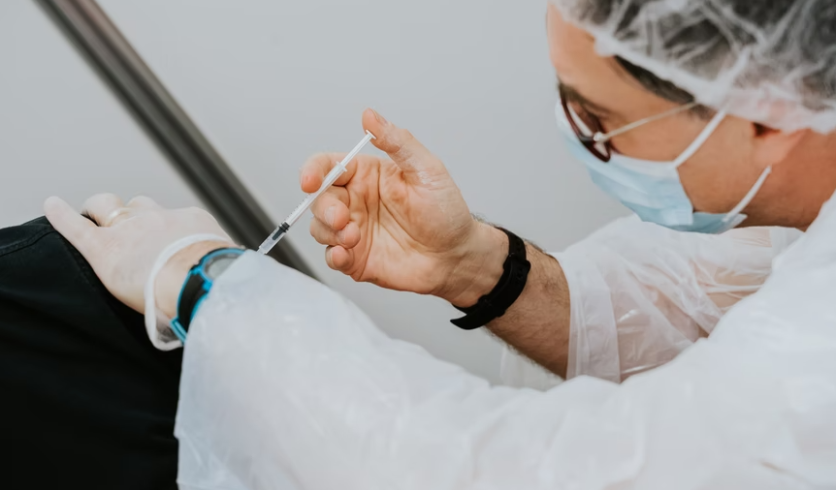
The FBI and the Centers for Disease Control and Prevention are currently investigating Merck & Co., a vaccine research facility in Philadelphia, Pennsylvania, after several vials labeled as smallpox were discovered in its freezers, according to the Department of Homeland Security.
FBI and CDC Investigates Research Facility
According to the unclassified "For Official Use Only" alert obtained by numerous media outlets and sent by the Department of Homeland Security, there were a total of 15 vials that were questionable, according to USA Today.
Five of them were labeled as smallpox, while the rest of them were labeled as vaccinia. The vials were immediately secured upon discovery, and the facility went into lockdown but has since been lifted.
The CDC said that there is no indication that anyone has been exposed to the small number of frozen vials.
The frozen vials labeled smallpox were incidentally discovered by a laboratory worker while cleaning out a freezer in a facility that conducts vaccine research in Pennsylvania.
Also Read: Smallpox Epidemiologist Donald Ainslie Henderson Dies At 87
The CDC, its Administration partners, and law enforcement are all investigating the matter, and the vials' contents are intact.
The CDC added that the laboratory worker who discovered the vials was wearing a face mask and gloves, and they would provide further details as they are available.
In 2014, the CDC revealed that vials of smallpox virus were discovered in a laboratory in Maryland, putting 84 scientists at risk.
In 2018, the FDA approved a new drug for smallpox that addresses bioterrorism risk.
Americans and Smallpox
Smallpox is a deadly and contagious virus, and it was declared eradicated in 1980 by the World Health Organization or WHO after a concerted global vaccination effort.
The virus had infected more than 15 million people a year and killed 30% of them. The last known outbreak in the United States was in 1947.
According to Live Science, only two laboratories in the world are authorized to store smallpox vaccine samples, including one in Russia and the other at the CDC office in Atlanta, Georgia.
The facility in Russia had an explosion in 2019, but no outbreaks came as a result. It is not clear how potential samples were allowed in the facility in Philadelphia.
Scientists have long debated whether to destroy any remaining samples, with some arguing against the danger because experts could need the samples to develop new vaccines in response to a new outbreak.
According to the CDC, most Americans are not vaccinated against smallpox.
According to Mayo Clinic, there is no treatment or cure for smallpox. A vaccine can only prevent it, and the vaccine's side effect risk is too high to justify routine vaccination in the country.
Smallpox mainly spreads by direct and fairly prolonged face-to-face contact between people. Patients became contagious once the first sores appeared in their throat and their mouth. They spread the virus when they sneeze, or cough and droplets from their nose or mouth spread to other people.
A person with smallpox goes through several stages as the disease progresses. Each stage has its signs and symptoms. The first symptoms include headaches, high fever, and vomiting.
Then, a rash starts as small red spots on the tongue and in the mouth. These spots change into sores that break open and spread large amounts of the virus into the mouth and throat.
Related Article: Forgotten vials of smallpox, dating back to '50s, found at NIH lab
This article is owned by Tech Times
Written by Sophie Webster
ⓒ 2026 TECHTIMES.com All rights reserved. Do not reproduce without permission.




